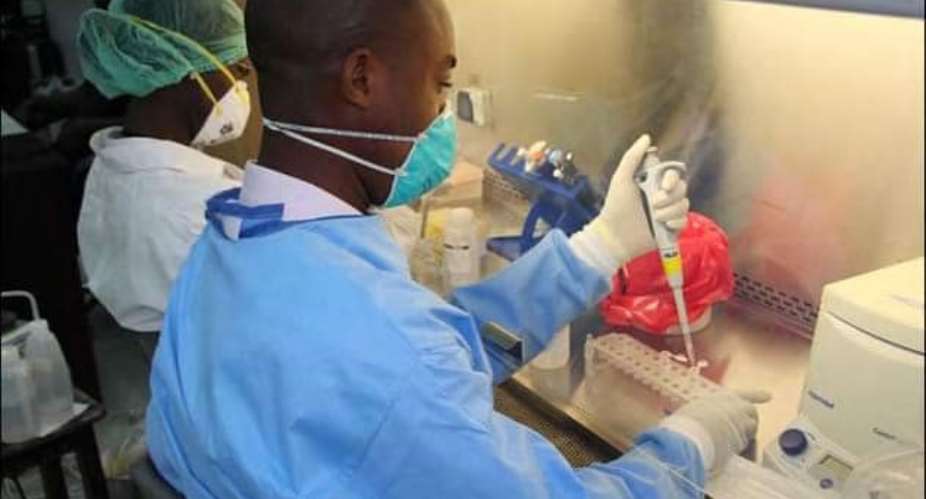Outbreaks and emergencies have had a way of exposing weaknesses in health systems and governance in Ghana. Predictably, the COVID-19 outbreak has forced Ghana to scramble for better health systems including scaling up testing through the expansion of diagnostic capacity because it’s an undeniable fact that, early testing and/or detection is critical for controlling this new pandemic.
But the question is, is there any long term sustainability policy for strengthening healthcare systems including our medical laboratory sector when the threat (Covid-19 pandemic) level declines?
While numerous crises-instigated expert opinions/speeches, medical research, government interventions and local product development efforts are now underway, will they disappear, once the covid-19 scare and media interest vanishes?
During the past 10 years, the field of global infectious diseases has witnessed tremendous challenges and opportunities, including the continuous struggle to control and prevent outbreaks and to tackle emerging or reemerging infectious diseases, including multidrug-resistant and extensively drug resistant tuberculosis (TB) and the current pandemic of novel COVID- 19 virus. These infections have been well contained in most developed countries like South Korea, Japan, Germany, etc. thanks to well-established laboratory supported surveillance systems. However, laboratory services and systems are weak in resource-poor countries like Ghana.
Laboratory diagnostics are a fundamental component of a successful outbreak containment strategy, enabling evidence-based control strategies to be implemented without delay in order to contain the outbreak, minimize response costs and save lives. Despite substantial evidence that medical laboratories are a key component of the overall health system; are needed to achieve the Sustainable Development Goals (SDGs) for health; are required for meeting universal access for treatment of HIV/AIDS, TB, and malaria; and are critical for achieving the objectives of the World Health Organization’s (WHO), they remain one of the most neglected components of the health system in many low and middle-income countries like Ghana.
Improvement of laboratories and strengthening health systems is still considered too expensive and difficult by many low and middle-income countries and little or no effort are made to build or strengthen laboratory networks. But why is diagnostic capacity discussed only during outbreaks and emergencies? The answer is: lack of commitment and the selfish interest of one professional group in the healthcare delivery chain, as in the case of Ghana.
The Sustainable Development Goals (SDG) require all countries to deliver on their pledge to ensure Universal Health Coverage (UHC) by 2030 but how can any country deliver UHC with so many people failing to get properly diagnosed?
We cannot afford to continue advocating for access to essential medicines, without access to quality medical laboratory diagnosis, laboratory diagnosis and drugs go hand in hand for optimal healthcare as clinical diagnosis without quality laboratory testing often results in significant misdiagnosis and over-diagnosis, leading to inadequate treatment, drug resistance and increase mortality.
We cannot continue to neglect quality medical laboratory systems as we think of a better healthcare.
“Diagnostics are a critical enabler of #HealthForAll”
Dr. Tedros Adhanom Ghebreyesus, Director General, World Health Organization.
KWEGYIR-AGGREY NANA
DOCTOR OF MEDICAL LABORATORY SCIENCE TRAINEE
(ASPIRING MEDICAL WRITER)





 Ghanaians deserve better than what Akufo-Addo’s ‘yenkendi’ and cronyistic gov’t ...
Ghanaians deserve better than what Akufo-Addo’s ‘yenkendi’ and cronyistic gov’t ...
 2024 election: Bawumia is the man of the moment with his campaign style – Koku A...
2024 election: Bawumia is the man of the moment with his campaign style – Koku A...
 Election 2024: Choose to transfer power to us peacefully in your own interest — ...
Election 2024: Choose to transfer power to us peacefully in your own interest — ...
 What's the point in passing RTI law if you can't adhere to it? — MFWA quizzes Ak...
What's the point in passing RTI law if you can't adhere to it? — MFWA quizzes Ak...
 US Millennium Compact: It's disheartening for Ghana to lose $190 million power d...
US Millennium Compact: It's disheartening for Ghana to lose $190 million power d...
 My next administration will conduct a thorough investigation of PDS scandal — Ma...
My next administration will conduct a thorough investigation of PDS scandal — Ma...
 Extend deadline for limited voter registration in various university campuses — ...
Extend deadline for limited voter registration in various university campuses — ...
 May 10: Glovo closes Ghana operations, ceases services by 10pm
May 10: Glovo closes Ghana operations, ceases services by 10pm
 60% of SHSs taken off double track system – Dr Yaw Osei Adutwum
60% of SHSs taken off double track system – Dr Yaw Osei Adutwum
 Voter registration: We hope to hit over one million registered voters in Volta -...
Voter registration: We hope to hit over one million registered voters in Volta -...
